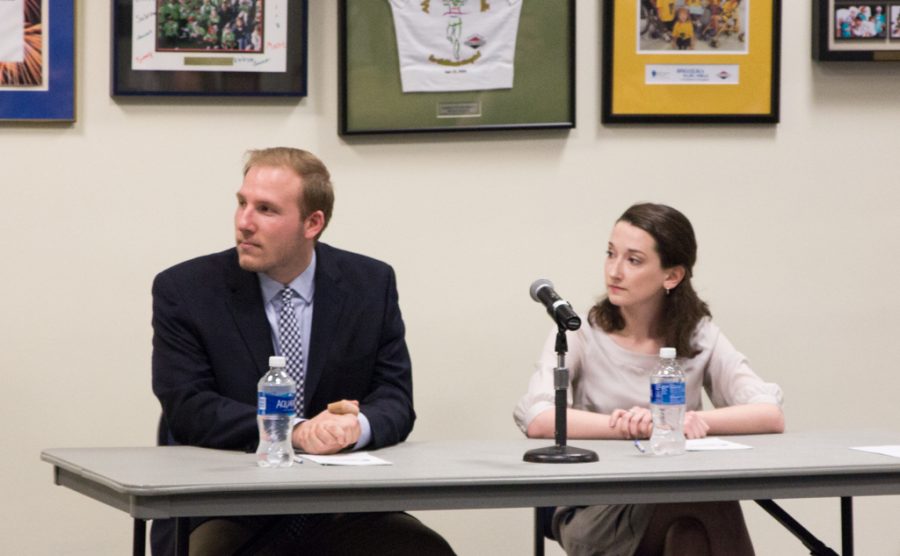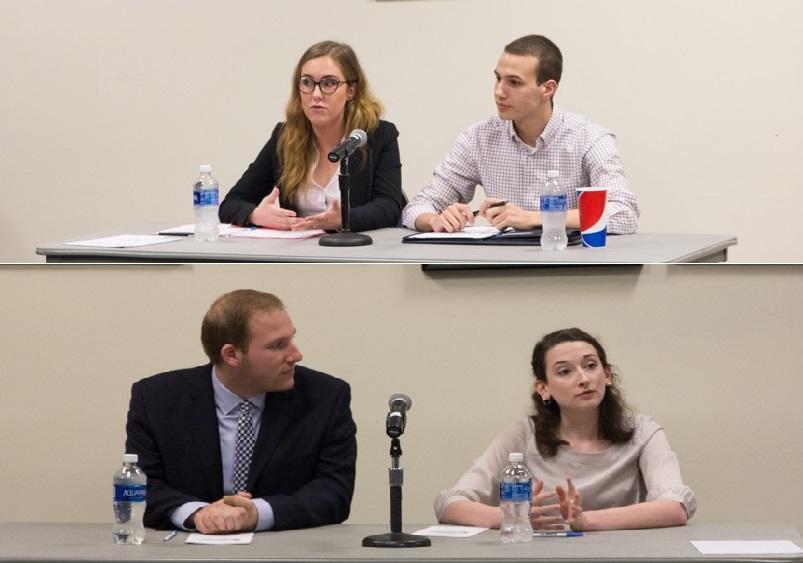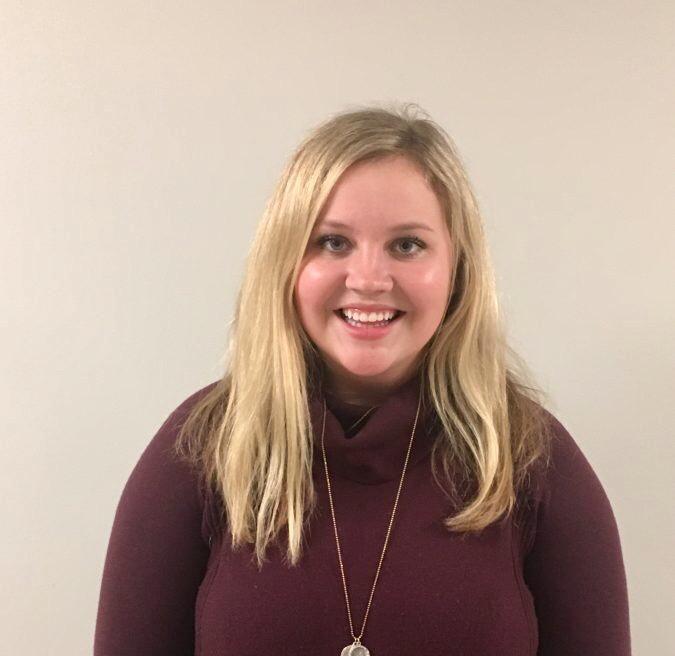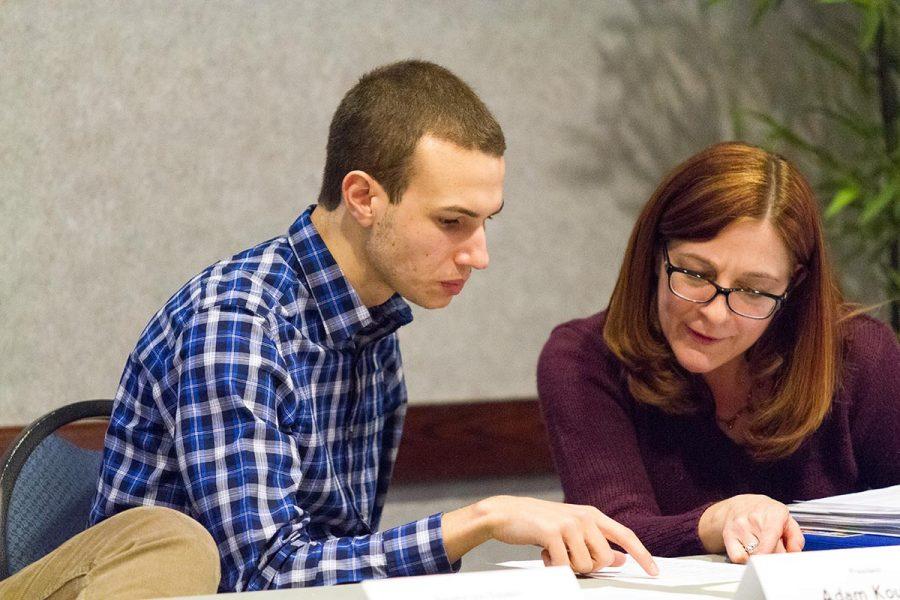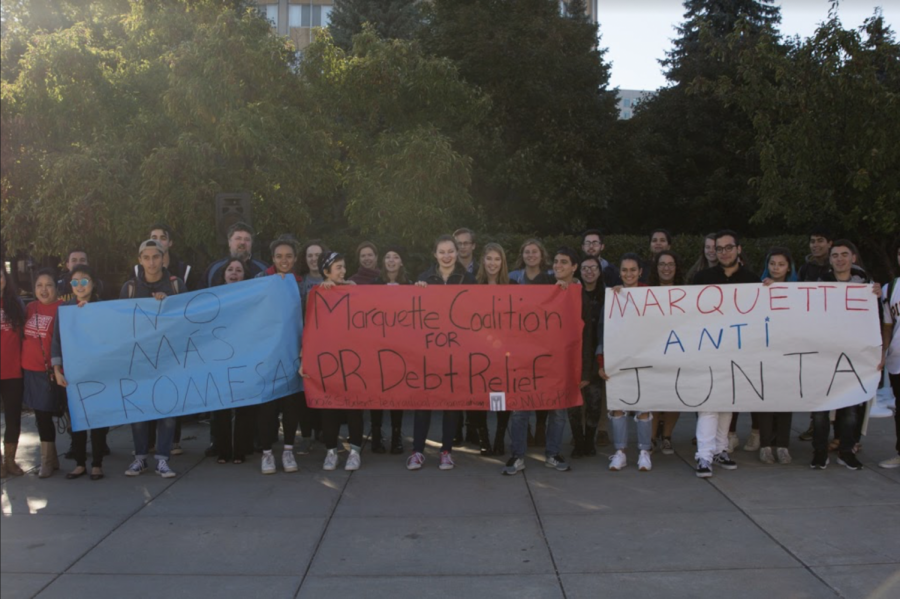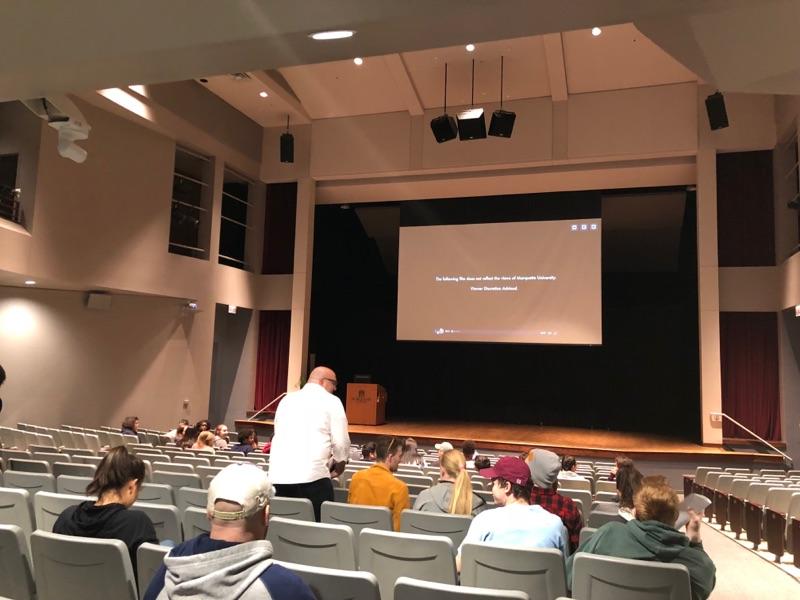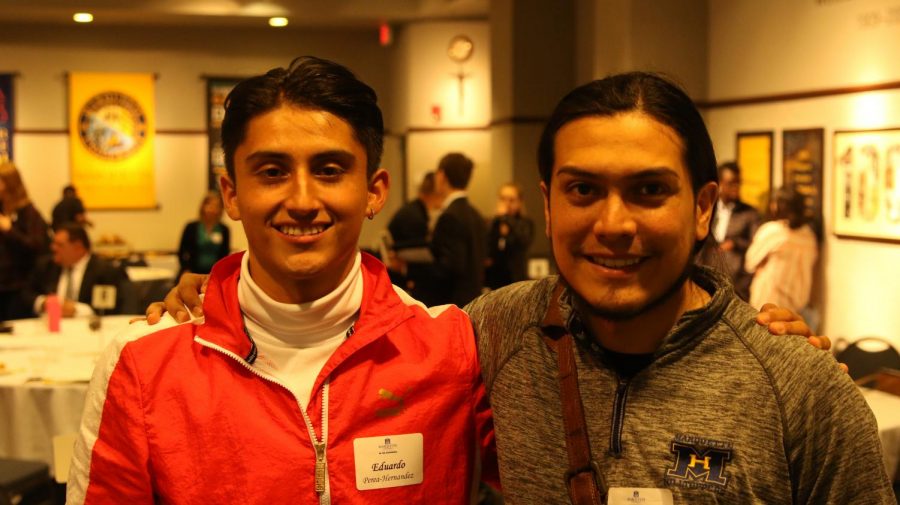A group of Marquette students gathered in a focus group last week to discuss the future of the Common Core.
Focus groups have been meeting throughout the week and each one brings a different perspective. There were about 12 students and three facilitators.
“It’s fascinating. We’ve heard from so many different groups around campus, but everyone brings something new,” said Lars Olson, group facilitator and the interim chair of biomedical engineering.
Fifteen proposals were pitched to the students for about 30 seconds each. Common themes throughout each of the proposals were tiering, social justice, thematic structure, seminars and capstones.
“I think of several common themes, one of which was balance: our students are asking for a common experience, but also flexibility in course offerings,” said John Su, Director of the Core of Common Studies.
The students then broke off into three small groups each led by a facilitator. In small groups the facilitators talked about the proposals in depth and the students gave feedback.
Su asked each group, “Could you imagine the value of this?”
The idea of a first-year seminar for all freshman was a topic that created a great deal of discussion among students. The seminar would address what it means to be part of a university in an urban environment.
Some participants were critical because they worried students would not take the seminar seriously.
“Often seminars are only one credit and they’re so broad,” a participant said. “Sometimes feel like you don’t learn anything.”
These suggestions did not go unnoticed by the facilitators.
“There is strong interest in first-year seminars and capstones, but they need to be designed in ways that students can immediately recognize their value,” Su said.
However, other students said the first-year seminar course would be valuable because it establishes a sense of community.
Another point of discussion was thematic structure of some of the purposed core. One student said she saw reoccurring themes in her courses but it would be interesting if they were purposefully integrated.
Other students found the thematic structure perplexing and would prefer something more sequential. Participants also noticed that changing majors would be difficult in proposals with a thematic structure.
Political Science Department Chair Lowell Barrington said the students thoughts would be communicated to university leadership.
“It was very important to get this input,” Barrington said. “We will make sure that the student views are included in the information that Provost Myers receives regarding feedback on the 15 Common Core structure proposals.“
Olson also found the feedback to be useful. “The information from the focus groups today was very valuable,” Olson said. “Adam (Kouhel) and those in MUSG did a great job of getting a very diverse and thoughtful group of students.”
The University Academic Senate will be meet to revise the structure of the 15 proposals April 18.
Based on the input from the campus community, Provost Myers will further narrow which proposals will make it to the next phase. A university team will be participating in a summer institute led by the American Association of Colleges and Universities to move towards a final proposal.


